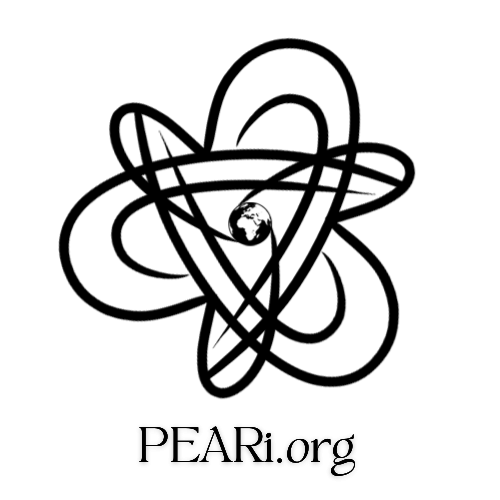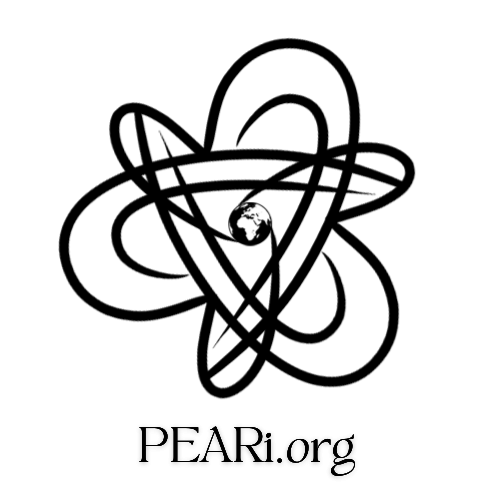In today's world, it is undeniable that work matters and words matter. Everyone has a role to play in creating a better future for us and the generations to come. Our actions and our language have immense power: we can either contribute to systems of oppression or dismantle them. This blog explores how what we do and say can affect the downstream impact of inequities in access to education, employment, poverty levels, and more. We will look at how focusing on responsibility, collective action, and positive language can help create lasting change-not just in our immediate communities but across the globe. By understanding the connection between work, words, and systemic oppression we can become part of the solution instead of contributing to the problem.
Systems of oppression like racism and sexism are the root cause of the inequities we see in the world today. When attempting to address these issues, it is fundamental to focus on their root cause versus just treating their symptoms. This means that whatever work we do must be directed at addressing the source of inequalities, not just what can be seen as its outcome. Equity-driven practices such as Belonging and Social Justice Work which look at systemic issues from a holistic perspective are key to creating sustainable change. Through striving for our greatest equitable outcomes and taking a system approach, we can look forward to making progress toward greater social justice for all people.
When it comes to addressing matters of social injustice" inequality, and inequity, it is essential that we take the time to identify and address the root causes of our issues properly. While treating the symptoms may be a quicker fix, it only masks the underlying problems that need to be resolved in order to create lasting change. Ignoring or attempting to treat the problem without looking at the deeper roots can result in ineffective results, as well as perpetuating the oppressive systems already in place. To make a long-term difference, it is necessary for us to focus on root causes not just visible symptoms.
Traditional Diversity and Inclusion work focuses on actively addressing the symptoms of racism, sexism, heterosexism, ableism, and other forms of oppression. This type of work seeks to address the symptoms of the existing oppressive systems that have resulted in discrimination, implicit bias, and exclusion. However. while this is an important step towards overcoming inequity and creating a more just society, it is not enough. To create lasting change and combat systemic injustice, we must go beyond treating the symptoms of these oppressive systems and focus on eradicating their root causes. Understanding our work in this context is essential for promoting equity, ensuring belonging, and social justice for all.
Now that we understand our work is to eradicate systems of oppression, we have the tools and knowledge at our disposal to dismantle them and create new systems of equity and belonging. To focus our efforts on this endeavor, it is important to consider the language we use when talking about it. The words and phrases we utilize can help us define our goals, establish outcomes, and take tangible action toward creating an equitable future. By using language that accurately describes our work vs. our outcomes. With language that reflects the values of equity and justice, we can ensure that our work is properly focused and effectively implemented.
Our work Equity, Belonging, and Social Justice Actions
People and organizations have embraced the value of equity" belonging, social justice, diversity, and inclusion by using all or most of these concepts in their work. Through this pursuit, they strive to create equitable environments which require an understanding of the nuances between equity and belonging versus diversity and inclusion and social justice.
Equity and belonging focus on shifting power dynamics and creating an environment where everyone is valued and belongs. These words, concepts and work support dismantling systems of oppression and building new systems where everyone thrives. In contrast, diversity and inclusion tend to place emphasis on representation and numbers and focus on solving the symptoms of systems of oppression.
Equity refers to the fair and just distribution of resources, opportunities, and power among individuals or groups. It aims to understand and address systemic barriers and create conditions that give everyone an equal chance to succeed. In short, equity involves recognizing and correcting past and present inequalities to ensure fairness and justice for all. Equity is our work.
Belonging encompasses and delivers beyond the concepts and work of inclusion, thus using the word, doing the work, and striving for the outcomes of belonging are essential. It is not enough to simply promote inclusion, but also create a culture of belonging where everyone is welcome, valued, and respected regardless of their backgrounds or differences. When people can be their authentic selves in places and spaces - they belong.
Belonging is our work.
Social Justice Actions are the cornerstone of Equity and Belonging. Equity lifts all people, ensuring everyone has the resources, opportunities, and support to thrive.
Sustainable Diversity as an Outcome
Sustainable Diversity is the outcome of Equity, Belonging, and Social Justice work. It is a concept that all people have similar experiences (promotion, pay, tenure, and sentiment of the organization). Sustainable Diversity goes beyond representation, embracing the experiences of diverse communities, and building environments that create sustainable ecosystems.
Having a practice of including people without changing the environment to one of belonging causes harm and trauma. To be included in a racist, sexist, homophobic, or oppressive environment does not foster change to the institutional structures that resulted in disparate treatment in the first place. The focus and thinking must be on creating belonging.
What we are doing isn't just about the work of diversity, the act of diversifying up the place; we need Sustainable Diversity as an outcome.
An organization may have gender parity in terms of the work to diversify, but is there pay equity, similar tenure, promotions, and experiences? An organization that focuses on the outcome of Sustainable Diversity understands that the work is Equity, Belonging, and Social Justice actions.
At its core, the battle for Equity and Belonging is a fight to end systemic racism and other systems of oppression. However, in order to make lasting change, it's not enough just to speak out against oppressive systems - we must also have meaningful action behind the work, and words we use to undo systems of oppression.
Understanding the impact language has on social justice efforts is just one small part of doing this work. How we talk about our work, Equity, and Belonging as focused on systemic change, the purposeful efforts of root causes of inequities, not just the symptoms.
In conclusion, we need to accept our responsibility to drive equitable outcomes and understand the difference between the work of equity and belonging versus diversity and inclusion. We must strive to dismantle systemic oppression with proactive steps being taken in organizational structures. Systems of Oppression have been around for a long time, thus changing the landscape of organizations toward equity, belonging, and social justice will also take time, but we can do it! By continuing to demonstrate commitment to and drive anti-racism and anti-oppression work.
What Commitment+ Action can do - create an equitable future through immediate systemic operational changes today!
In conclusion, we need to accept our responsibility to drive equitable outcomes and understand the difference between the work of equity and belonging versus diversity and inclusion. We must strive to dismantle systemic oppression with proactive steps being taken in organizational structures. Systems of Oppression have been around for a long time, thus changing the landscape of organizations toward equity, belonging, and social justice will also take time, but we can do it! By continuing to demonstrate commitment to and drive anti-racism and anti-oppression work.
What Commitment+ Action can do - create an equitable future through immediate systemic operational changes today!
Work Matters, Words Matter- What we do and What we say, Matters. We need to be clear that our work must dismantle systems of oppression and create new systems where everyone thrives.
Be. Give. Do. Pro-Equity Anti-Racism
Pro-Equity Anti-Racism (PEAR)
A framework that purposefully begins with a Pro-Equity effort to end all systems of oppression, the upstream root cause of inequities, intentionally ensuring an Intersectionality approach leading through the lens of Anti-Racism.

